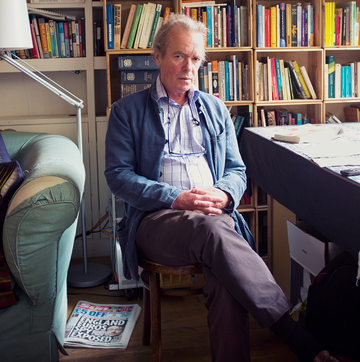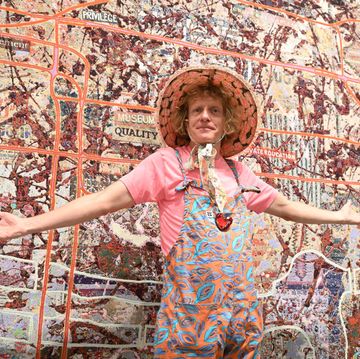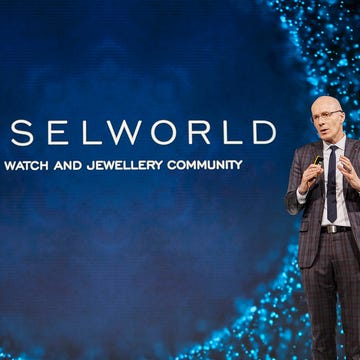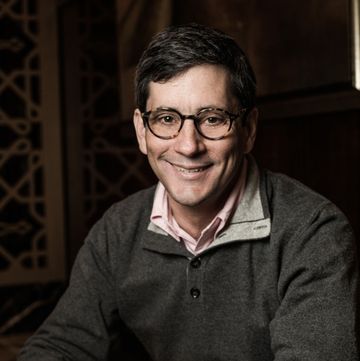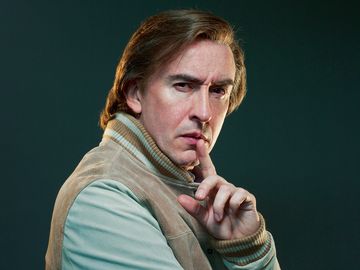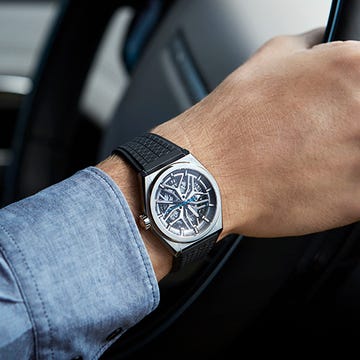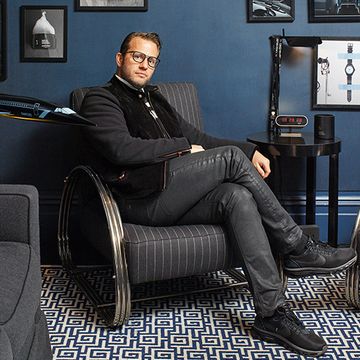The first thing is entertainment. Provide an opportunity to laugh and to cry. If I can do that, I feel I’m doing something right. And a novel that doesn’t do that has problems.
I probably care less about stuff than almost anyone I know. I just can’t interest myself in having possessions. Last week and this week I’m repainting our guest room, which is a horrible job because it was this bright brick-red when we bought the house and it takes forever to cover that red. It’s four coats of paint. And, you know, I could pay someone to do that, but then I’d be the kind of person who paid someone to do that.
I do feel like a lucky person, and a small but significant part of my luck was that I was a youngest child. My parents had exhausted their extreme discipline and general mistake-
making on my older brothers and they cut me a lot of slack. So, I didn’t have to fight with them the way my brothers did. Older siblings tend to think that the younger ones have it easy and I wouldn’t deny it.
My brain really likes nicotine. I wrote The Corrections without nicotine, so I know I can write good books without nicotine, but it really helps me settle down in the morning and just snap into concentration. It was nine years I was fumbling around with The Corrections and those were mostly nicotine-
free years, whereas when I went back on nicotine, which was when I started working on Freedom, I wrote that book in a year.
Am I the only person in the world who does nicotine by getting some all-natural cigarettes and breaking them up and mixing it with baking soda and chewing it? Possibly.
I don’t think I can produce a better-written book than The Corrections. It takes a long time as a writer to stop feeling you have to prove you can do it and, after The Corrections, I felt I didn’t need to do that any more. I still can write a sentence, but I didn’t need the sentences to tap you on the shoulder and say, “He can really write a sentence.” There’s an effulgence to the prose in The Corrections that I had a taste for then and I no longer do.
It says something bad about the national character [in the US] that we have the concept of the 'Great American Novel'. It’s a way in this highly commercial society of saying, “OK, well, that’s the product that I’ll have to buy and then I don’t have to worry about it, because I’ll have the best product.” So I hate the phrase.
The single word I associate with birds is joy. I don’t know where my interest comes from and psychological explanations seem reductive. I might be inclined to say, “Well, I didn’t have children, and birds give me something both to love and to feel responsibility towards and do my best to take care of and to take joy in.” I know a lot of birders who do have young kids and they still bird. It’s not simple.
A well-struck, sliced backhand is pretty close to heaven. It’s a much higher pleasure than you get from writing. Occasionally, I’ll wake up at four in the morning having solved a problem while half-asleep and I’ll have a sense of exhilaration. But I’m afraid it’s closer to the joy of finally getting some shred of meat that’s been between your teeth. That’s a lower-order joy.
I’m a competitive person. I could lie and be “Aw shucks” and say, “I’d love to have my life and not deal with the headache of a certain level of celebrity.” But a certain level of acclaim is like points in a tennis game: you either keep score or you don’t. I can’t help it, even when I’m hitting with a friend and we say, “Oh, we’re not counting the games...” I’m counting the games. I could tell you exactly at the end: “Yes, he won seven, I won three.”
It’s very hard to shut the noise out. And I don’t just mean noise literally. But if you force yourself to sit in a dark room listening to nothing, it is possible to hear what people are not talking about. What texting and Facebook and email do is they are welcome distractions from the problem of the self, and all of these submerged desires and submerged fears and unresolved conflicts. And that is where the good fiction lies. It’s in that which you are trying to avoid by stimulating yourself with the noise.
A nice frosty glass of gin from the freezer creates a very distinct boundary between the work part of the day and the part of the day where I lie and watch good cable TV. But I’m very happy having a single small beer these days and it actually turns out to have the same function. And there’s a lot more sips you can take than you can from a glass of gin – or you’re really in trouble.
Somehow, everyone else has an interesting face but your own is simply this pasty, bland awful thing. Most writers would say that, though Samuel Beckett probably didn’t think that, because Samuel Beckett had one of the greatest writer faces ever.
I don’t think of myself as a technophobe. But that’s what encrusted, received wisdom suggests if you dare to point out, for example, that mobile phones are incredibly addictive and that maybe it’s worth thinking about the fact that you can’t sit still for five minutes without checking for a text. I’m actually pretty good at technology and I use it constantly all day long. I’m not the Unabomber; I don’t live in a cabin in Montana.
I have gotten good at this now. After this last novel [Purity], I’d been planning not to write a novel again for at least a decade. I felt I was not done, but that I had gone to depths that I did not need to return to. And if I wasn’t going to return to those depths, then why would I write another novel? But almost immediately, I started to consider the alternatives in terms of how I spend my time and, in a straightforward, Aristotelian way, shouldn’t I be spending my life doing what I’m best at? I don’t know if I have gotten better, but I’m in possession of a set of skills that was hard-won and it would be a shame to waste. And maybe I don’t need to be out saving the world in some way.
Purity by Jonathan Franzen (Fourth Estate) is out on 1 September


